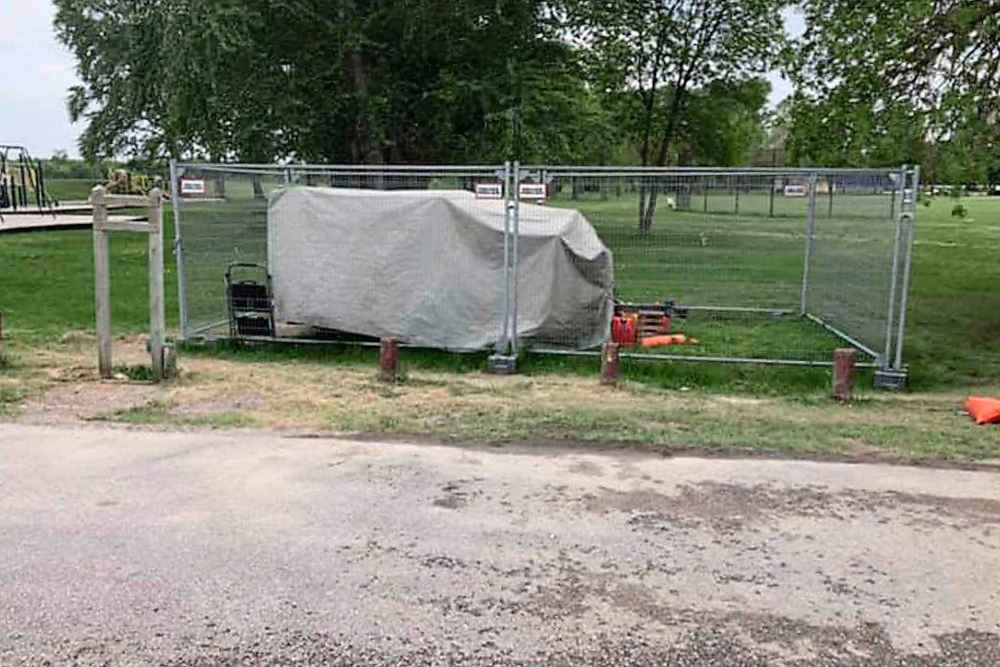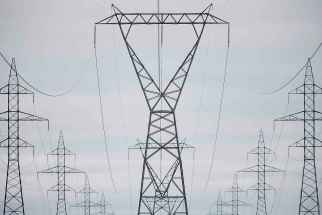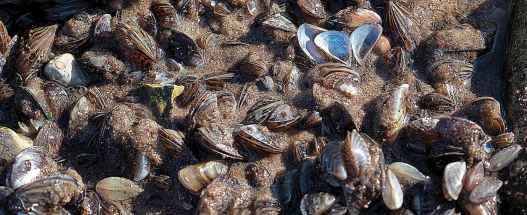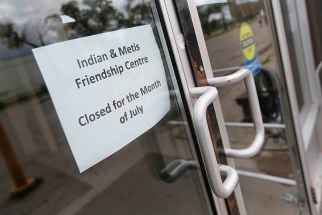Not enough zebra mussel stations in Manitoba: Anglers
Read this article for free:
or
Already have an account? Log in here »
To continue reading, please subscribe:
Monthly Digital Subscription
$0 for the first 4 weeks*
- Enjoy unlimited reading on winnipegfreepress.com
- Read the E-Edition, our digital replica newspaper
- Access News Break, our award-winning app
- Play interactive puzzles
*No charge for 4 weeks then price increases to the regular rate of $19.00 plus GST every four weeks. Offer available to new and qualified returning subscribers only. Cancel any time.
Monthly Digital Subscription
$4.75/week*
- Enjoy unlimited reading on winnipegfreepress.com
- Read the E-Edition, our digital replica newspaper
- Access News Break, our award-winning app
- Play interactive puzzles
*Billed as $19 plus GST every four weeks. Cancel any time.
To continue reading, please subscribe:
Add Free Press access to your Brandon Sun subscription for only an additional
$1 for the first 4 weeks*
*Your next subscription payment will increase by $1.00 and you will be charged $16.99 plus GST for four weeks. After four weeks, your payment will increase to $23.99 plus GST every four weeks.
Read unlimited articles for free today:
or
Already have an account? Log in here »
Hey there, time traveller!
This article was published 12/06/2019 (2372 days ago), so information in it may no longer be current.
Anglers say there aren’t enough zebra mussel decontamination stations, and they aren’t open long enough hours, to keep boats from spreading the invasive species.
Six mobile decontamination units are rotated around the province; this week, they’re in Selkirk, Headingley, Mulvill, The Pas, Swan River and Grand Rapids. Schedules are posted a week in advance.
The goal is to clean watercraft before they move between lakes and potentially spread zebra mussels, an invasive species confirmed in Lake Winnipeg in the fall of 2013 and the Red River and Cedar Lake in 2015.
The tiny clam-like bivalves — just one to three centimetres across — can hide in crevices of boats. Their larvae are so tiny, they can’t be seen by the naked eye. To stop the spread to uncontaminated waterways, boaters are told to clean, drain and dry all watercraft and equipment, and throw unwanted bait in the garbage before leaving the shoreline.
Donovan Pearase tried to go to the decontamination station in Selkirk around 4 p.m. on Friday and again just before noon on Wednesday. Both times, it was closed — the station opened at 12:30 p.m. on Wednesday and a provincial official said it closed at 4 p.m. on Friday.
Ideally, he says, stations would be open from 8 a.m. to 8 p.m., seven days a week.
“The program is a good idea but it’s massively under-supported and under-staffed,” said Pearase.

A spokesperson for Sustainable Development said in 2019, “we have staffed the stations to provide an increase hours of operation and number of days operating per week for some stations.” It’s not clear how many additional hours or days have been made available.
Pearase says he’d like to see more staff and support for the program. He said he worries that if people can’t easily access stations — and could face fines from $237 to $2,542 for not complying — they might choose to lie about where their boats have been or where they’re going.
Driving to a decontamination station can cost an angling tour guide a whole day, says David Schellenberg, executive director of the Manitoba Lodges and Outfitters Association.
He says members who make their living off Manitoba’s lakes are concerned about the spread of the invasive species, but the hours and locations are cumbersome.
THIS WEEK’S INSPECTION SCHEDULE
- Selkirk Park boat launch
- Headingley-Weigh Station
- Mulvihill-Hwy 6 at 68W (north of Eriksdale)
- The Pas-Hwy 10 at Prospector (south of Hwy 287)
- Swan River-Hwy 10 @ Westwood Inn
- Grand Rapids-Hwy 6 at Grand Rapids Dr.
“This is one of the No. 1 issues I’ve stepped into,” said Schellenberg, who started with MLOA this spring.
He’d like to see more stations, and permanent ones, so people know when and where to go.
Boaters leaving high-risk areas are required to use decontamination stations when they’re open, and must ensure their boats are cleaned before they enter another water body.
If a guide is stopped in Swan River when the unit’s not there, they might have to drive five hours to Headingley to get his boat decontaminated — or potentially have their boat locked up by provincial officials.
“He has lost that day of booking, and that could be a significant loss,” he said.
Schellenberg would like to see a permanent site in Selkirk, and at least one in the Whiteshell area too.

He’d also like to see longer hours, noting anglers head out quite early in the morning and may return late.
“We know they’re missing some peak usage times when boats are going into the water,” Schellenberg said. “And those inspections are being missed.”
A spokesperson for the province said when inspection stations are closed, the public are expected to clean their own watercraft if necessary.
Gareth Clisby has occasionally resorted to cleaning his own boat — but it’s hard to find somewhere big enough, on dry land, and with hot enough water.
The provincial Aquatic Invasive Species website warns against using car washes, as the water temperature doesn’t get hot enough. Chilling to -10 C for three days is also an acceptable way to get rid of the invasive species. Detailed steps to decontaminate your own watercraft are available on the province’s website.
But ultimately, Clisby says, “for the program to work they are going to need more checks and places to get boats decontaminated.”
tvanderhart@freepress.mb.ca
@tessavanderhart











